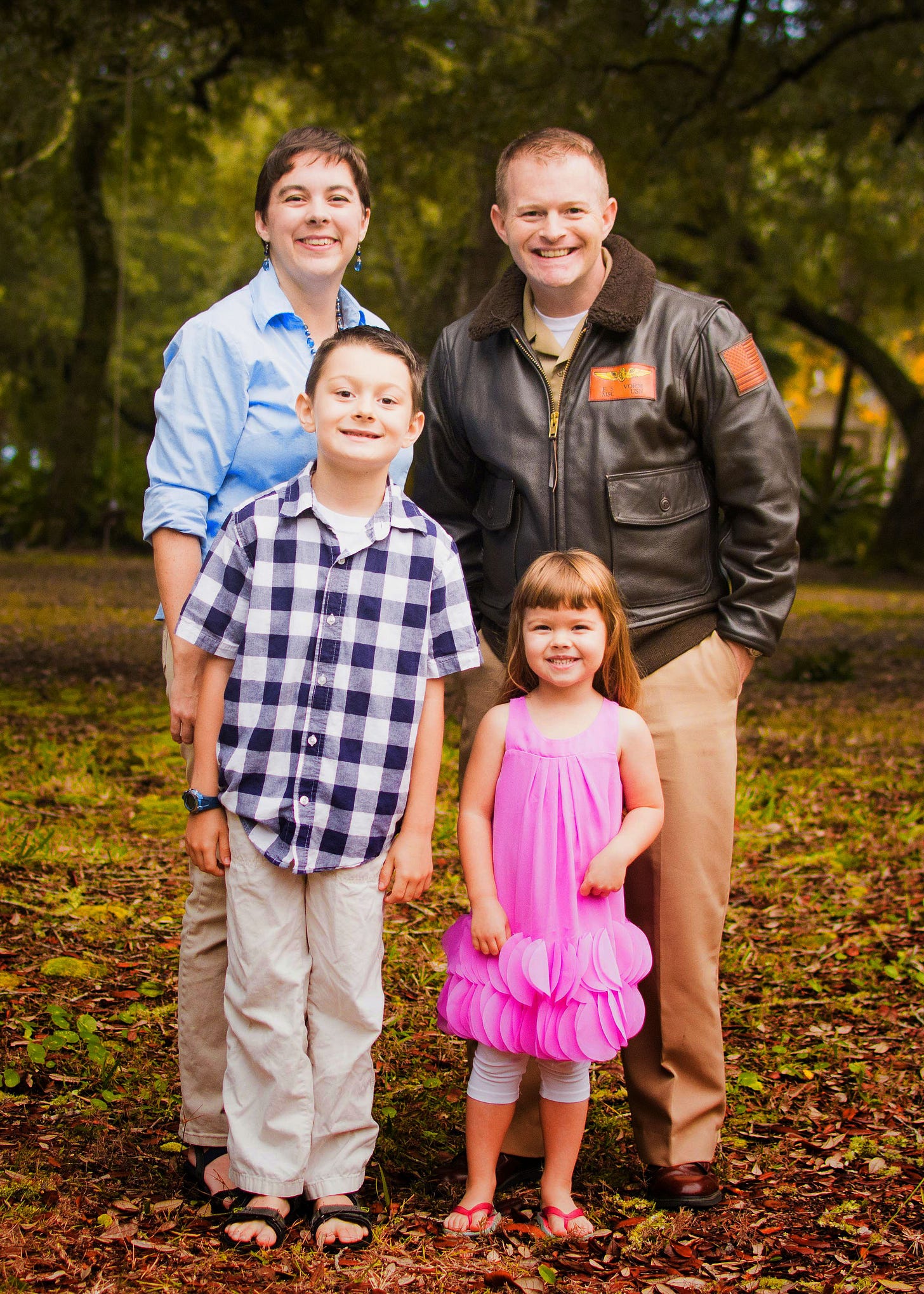Educating a 13 year old has many perks. One of them is introducing her to amazing moments throughout history. Recently, my daughter and I have been working our way through American History. We’re currently on the 1960s, learning about the civil rights movement. Today, I had the honor of introducing her to Martin Luther King’s “I have a dream” speech. I tried to read it out loud to her, but couldn’t finish without tearing up and needing to catch my breath. Instead, I pulled up a video of the famous civil rights march on Washington in 1963.
It was fascinating watching the grainy images of 250,000 people crowded into the national mall, a place we frequent often—a privilege of living in the shadow of Washington DC. Ever attuned to fashion, my daughter noticed many interesting differences—men in crew cuts, wearing white short-sleeved dress shirts and thin black ties. Women in long sundresses with wing-tip glasses. But as I sat and watched the recording of that day, there was one thing I noticed that I hadn’t noticed before.
For the first few minutes of his speech, Martin Luther King was reading from his notes.
His speech was well-written and delivered, but it had a very different tone than the portion of the speech I was more familiar with—the famous part, which is the only part of the speech I had ever heard before today. Not only was the tone different, but the people listening were very somber and respectful. They sat quietly, looking down to ponder what was being said, perhaps trying to process the many dense words and complex clauses Dr. King was expressing. The whole sound and feel of the speech was very different than what I remember hearing before.
There was a moment, however, when Dr. King appeared to dispense with his notes entirely. He ceased looking down, and began to speak fluidly.
And that’s when everything turned around.
His words flowed. His voice rose. Members of the audience started calling out in agreement. They rose to their feet. Dr. King’s hands began to wave. His head lifted as he shouted each new phrase. The speech rose and rose, and with it, so did the entire national mall, immediately conscious of a quality in Dr. King’s words that all humans can innately detect:
Authenticity.
Dr. King’s original speech was eloquent as it was written, but it was something he might have read as prepared remarks in front of congress—a place where formality and decorum is valued over showmanship and fervor. But on the steps of the national mall, after hours of other speeches and performances, at a time when hundreds of thousands of people gathered from all over the country in a demonstration of determination, Dr. King knew he needed something more.
He needed to speak with his own voice.
And when he did, the world listened.
The Importance of Finding Your Voice
Years ago, I found myself in a very dark place. I was hopeless and afraid. I had a problem, but I was too embarrassed to admit it because I thought doing so would mean I’d lose my most precious thing: what you thought of me.
See, I had curated my life in such a way as to prove I was amazing and therefore worthy, and I worked tirelessly to preserve that persona at all costs. If the US Navy had a recruiting poster for families, we’d be on it—me in my aviation leather jacket, my wife at my side, two beautiful smiling children, a German Shepherd. I collected awards and degrees like they were candy. The halls of my house were covered with evidence of my greatness. I lived a life of intrigue and excitement, and I had the Instagram reel to prove it!
But behind all that smoke screen was a very troubled man with a debilitating drinking habit that just would not leave me alone.
And after nearly a decade of trying and failing to control said habit, I finally got serious and got help in the form of a 12-step program. But even as these meetings were helping me achieve what I had never been able to achieve on my own, I quickly developed a new concern. I became convinced that I didn’t belong because I lacked something vital—credibility.
Unlike many remarkable drinking tales that featured tragic falls from grace, huge ordeals in the court systems, repeated visits to rehabs, or even prison time, my stories seemed far too banal and tame to compare.
For example, while drinking, I once binge-watched an entire season of a TV show that I didn’t remember at all—only my DVR history showed that I had in fact watched it over several evenings in a row.
I would sometimes wake up with the taste of foods in my mouth that I didn’t remember eating. The next morning I’d look through the trash to figure out what exactly I had eaten.
While drinking one night, I got up to use the bathroom before tucking the kids into bed. I felt sick and laid down on the floor, and promptly passed out.
It was 9pm on a Wednesday.
Why did I drink that much? I asked myself the next morning, bewildered and confused.
It hadn’t been a particularly bad day. It hadn’t been a particularly good day either. It had just been a Wednesday.
When I was drinking, I would sit on the couch for hours by myself after everyone had gone to bed and I would think about writing stories. I would scribble notes to myself as insurance against forgetting what I was certain were my purest creative ideas—the ones illuminated by this magical substance I swallowed in abundance. Only no stories were ever written, and my notes looked like poorly crafted schizophrenic character sketches:
Hero with hat, scared to drive, waves, seems bored, wants what we all want, jumps into oblivion.
If alcohol reveals the deepest truths of a person, then what it uncovered in me only confirmed my deepest fear: that I was, in fact, nothing special.
And so the first few months in the rooms, I chose not to speak up out of fear that my stories wouldn’t add up. I told myself I didn’t have the necessary ‘street credibility.’ My problem was more a nuisance. I wasn’t sick with a disease, I was just weak and needed to get over myself.
Gratefully, early in my sobriety, someone brought me along to speak at a rehab center and share my story. I was nervous and anxious, and it showed. Within minutes, people had either gotten up and left, fallen asleep, or started talking among themselves. My words had no weight, not because my story lacked meaning, but because they weren’t my words. I was reciting things I’d heard others say, relying on tropes, parroting a story I thought I was supposed to tell. It wasn’t until later that I realized the problem: I didn’t yet know what story I had to tell. I didn’t know my own voice, nor did I trust it.
I hadn’t yet discovered the value of speaking from my experience and letting that be enough.
I had to learn for myself that what gave me credibility isn’t eloquence or experience measured against someone else’s. It’s the truth I have lived. When we are willing to speak from that place—raw and real—we carry more authority than we know.
I don’t know how or when it happened, but slowly over time, with the steady encouragement and support of others, I developed the confidence to tell my story without embellishment or borrowed words. When I discovered that for myself, everything turned around.
People began to resonate with what I shared. They’d stop me after a meeting and thank me. They’d ask me out to coffee and we’d relate to each other’s experiences.
They’d hug me and cry into my shoulder and thank me for telling their story through my own words.
Today, I volunteer to share my experience, strength and hope in recovery on a regular basis. I go into rehabs every month, and I visit a prison release facility every week.
I even write on Substack. :)
What Readers Really Want
We’re living in a time when the opportunity for inauthenticity is unprecedented—especially among creators. Large Language Models have made it effortless to generate polished content. And I see it every day as I scroll through Notes and newsletters.
There’s a sudden wave of people with stories of healing to tell or advice to give about how to live life to its fullest. It’s fashionable now to use phrases like let’s just sit with that for a minute or maybe, just maybe, that’s enough.
But to me, those lines often land like literary musak—soulless elevator music meant only to fill the silence.
Some people claim they can spot AI writing by things like em dashes—those wonderful tools for emphasis or clarification. Those silly things aren’t AI; I was using em dashes in high school. They’ve always been one of my favorite devices.
Others point to patterns, like triplets of sentences, split out line by line for rhythm and effect.
You think AI wrote this. And maybe it did. Or maybe I just like to write this way because I want you to pause and feel it.
How I structure my words does not determine their authenticity. We recognize something real not because of formatting.
You know it’s real because you know it’s real.
There’s a part of us that lights up when we encounter truth. Humans have a kind of built-in detector for authenticity. And in a world where words have become cheap—where we can all be Ernest Hemingway with the press of a button—authenticity is the new currency.
Lately, I struggle to make it through even a few paragraphs of the polished, empty stuff. It leaves me sad, not so much because people are churning out bowls of AI-generated rice puffs and calling it a Denver omelet, but because I was drawn to Substack for the authentic writing I found here and nowhere else.
There are still little enclaves of genuineness in here, I just have to look a bit harder to find them. But when I do come across someone speaking with a clear mind and a full heart, the result is unmistakable. I am moved. I am changed. I am grateful. (See, I could have broken those out into lines, but I didn’t!)
When I choose to spend my time scrolling through Substack, it is because I am eager to find resonance. I crave authenticity. I want to hear your story. I want to read your words. From your heart.
Because I know that when you speak honestly and courageously, you offer something only you can give. When you do that, it benefits us all.
What happened to me—in childhood, in war, in recovery—only holds value when I’m willing to share it sincerely, in my own voice. That’s when the magic happens. If I get on here and write from any other place—if I perform or posture or reach for borrowed truths—I lose my way. And worse, I waste your time.
Dr. King’s original speech was carefully crafted. But in the moment, he knew the crowd needed something more. He set the script aside. When he did, it was raw, unpolished, sometimes stammered—but it was unmistakably real. And that truth moved 250,000 people to their feet.
That’s the kind of voice I’m hungry for today.
Not perfection. Not polish. Just you.
Tell me who you are, with your own voice.
I’m listening.
p.s. And if you are, like me, starving for a good dose of genuine authenticity from a person who writes about thriving through adversity, check out Josie George’s newsletter Bimblings. THAT, my friends, is as real as it gets.
About The Author
ES Vorm, PhD writes about recovery, parenting, authenticity, and the quiet courage it takes to live a life of truth. A former Navy aviator and experimental psychologist, he now spends his days homeschooling his daughter, walking through healing with honesty, and rediscovering purpose outside of performance. His work, The Recovering, invites others to drop the mask, trust their voice, and share the stories that only they can tell.







